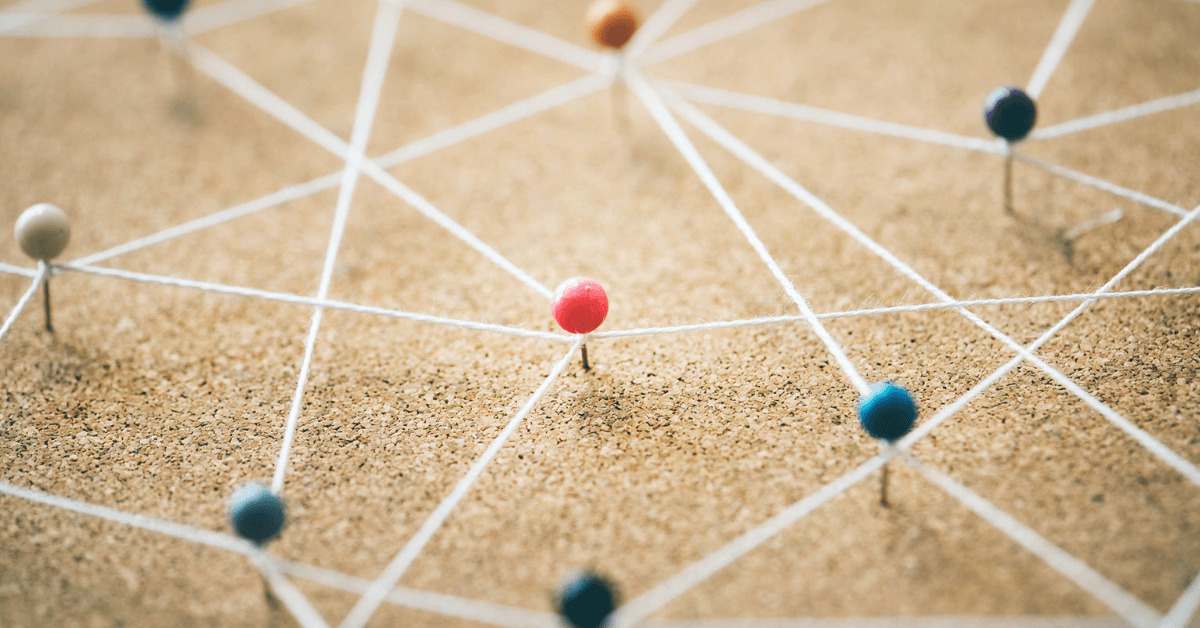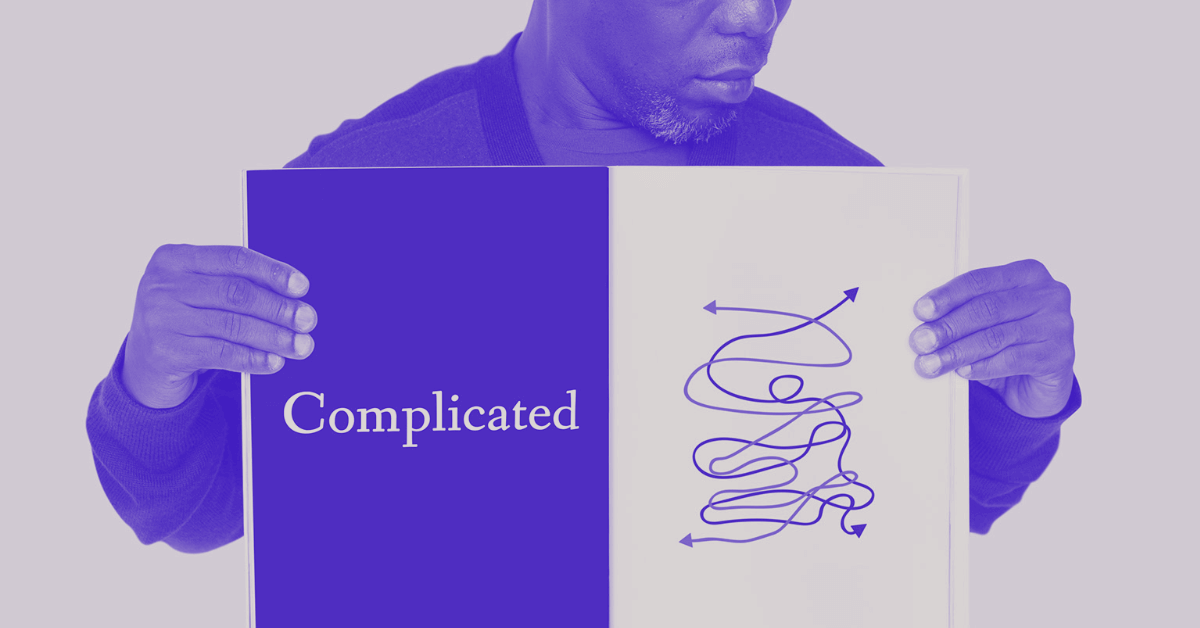Grief is Love with Nowhere to Go
Grief and love are intertwined so intricately that it's impossible to decipher where one begins and the other ends. Because at the end of the day, grief is love with nowhere to go.

“Grief, I've learned, is really just love. It's all the love you want to give, but cannot. All that unspent love gathers up in the corners of your eyes, the lump in your throat, and in that hollow part of your chest. Grief is just love with no place to go.” ― Jamie Anderson
Most people think that loss and a broken heart are emotional conditions. But I’d like to disagree. The pain of a broken heart is very much physical and visceral. It can feel like a part of your body is bleeding out. And with it, it's taking all the goodness and strength that is within you.
I absolutely love how Jamie Anderson describes grief. When you are unable to love someone because of loss or fallout (especially if it is sudden), all the love in your heart for that person has no place to go. You have so much to share with this person, but you cannot give. It piles up inside of you, becomes toxic over time, and is often labeled as grief by psychologists after.
These toxins then accumulate within us, emotional and spiritual become physical, and we develop chronic conditions that have no cause and no medicine. Because it was not a physical condition to begin with. It was love. And now it's grief.
Grief is love with nowhere to go.
I have no proof of any of this, obviously, I just speak from experience. Losing someone you love is often humbling. The pain makes you perceptive. I only speak from experience.
When I first experienced grief, I was ashamed of it. Like the death of a loved one was my fault, that I caused it somehow. We often forget that grief is a part of life – just like love and loss are. It's not something to be ashamed of or something that needs to be hidden away. It's also not something you should rush through as quickly as possible. We need time to process our feelings and move forward in our lives, so taking it slow and allowing time to heal ourselves is key.
If you are experiencing grief because of love and loss, here are a few things to remember:
It's okay to be angry
It's normal to feel anger and blow up in a situation where you're grieving, but it is not okay to act on that anger by being violent or abusive. We already know from research that anger is very much a part of grief. Even if you are not experiencing it right now, be mindful and aware of your outbursts.
Loss of identity and self can manifest in many ways throughout our lifetime. Here is why it happens and what you can do about it.
lifeism.coDon’t judge yourself harshly and try to contain any further damage to your existing relationships. You can't control how other people react, so don't put yourself in situations where you might be at risk of hurting someone else or yourself. When you're feeling angry, go somewhere alone and walk around until the urge subsides. I personally found boxing gloves and a punching bag an incredibly viable alternative when I was grieving. It may sound extreme, but it really helped me cope with grief constructively.
It is also important to introspect. Why are you angry? Who are you angry with? Yourself? The person you loved and lost? This may help in reducing the outbursts that are unexplained and directed at someone else.
Acknowledge and accept your feelings
It’s important that you acknowledge and accept your feelings. If you feel angry, or sad, or guilty – allow yourself to feel those emotions. They’re a natural part of the grief process and should not be ignored.
However, it is also important to remember that grief is not an immediate thing: it is a process rather than a destination. You can expect many ups and downs as you move through this challenging period in your life; there will be moments when it seems like nothing has changed at all and others when every breath feels like its own battle (or vice versa). This can feel particularly vulnerable because your whole world changed, but nothing changed for anyone else.
Move your body
This one should not come as a surprise – exercise has many benefits, and we are all aware of them. Other than coping with grief, you can increase your muscle mass and tone, which will give you more energy and make you feel better.
Exercise can make your sleep better because it releases endorphins that relax the body. For people who have trouble sleeping because of grief and loss, endorphins are a fantastic way to help them drift into slumber at night.
If you're feeling lost or confused about where to go next in life after losing someone, exercise can help with that as well. A good workout boosts confidence by showing that even though things are difficult now, they will improve with time and effort on your part--even if it's just climbing a flight of stairs at work every day!
Exercise gives you a sense of control over your tumultuous life when in grief. If there is one thing we know about grief, it is that things change quickly from day to day (and sometimes hour-to-hour). Exercise helps us get through those tough times because it gives us something concrete for our minds to hold onto during chaotic times: “I'm going for a run today” versus “I don't know what I'm doing anymore."
Eat well
When you're dealing with grief, it's important to eat well. A balanced diet and plenty of water will help you stay hydrated, keep your energy up, and your hormones in check.
What is the meaning of life? We've all asked this question at some point in our lives. In this post, we explore a possible answer to this deep question.
lifeism.coSome people find that they crave certain types of food during grief, while others find that they're unable to eat anything at all. If you have trouble keeping down food, try eating small meals throughout the day instead of skipping any meals entirely; this way, your body will still get some necessary nutrition even if you aren't able to eat as much as usual.
If overeating is a problem for you during periods of high stress (which is common), avoid comfort foods like ice cream or cookies—these may make things worse by increasing stress hormones in the short term but then leaving them elevated for long periods afterward.
Don't make major decisions
You may be tempted to make major decisions in the first year after your loved one's loss. Don't do this. You are still in the process of grieving, and it is important that you focus on yourself, your family, and the loss that you have just experienced.
It is also important to avoid making life-changing decisions at this time because they can be difficult to reverse later on (and even more difficult if they affect others). For example:
- If you need to change jobs or move based on where your family lives now, wait until after you have had some time away from work and home.
- If there are other people involved with what happens next (such as children), their needs should be factored in or anyone else's when making these types of choices for yourself or for them.
Life is not always a bed of roses, but it need not always be a bed of thorns either. Learn how you can simplify your life by making a few changes.
lifeism.coAccept offers of help
When people offer their help, be sure to accept it. If a friend asks if she can do anything for you, the answer is always yes! Don't be afraid to ask for help from friends and family. Even if they haven't known you very long or aren't as close with you as others in your life, they may just have an idea that can make all the difference in getting through this difficult time in your life.
You also don't need to feel embarrassed about asking for professional assistance either. It's never too early or late to get professional support when dealing with grief. Many people find that having someone who understands what they're going through makes all the difference in healing and coming out stronger on the other side of their loss.
If there isn't anyone available locally who can provide that kind of support, there are online communities such as GriefShare where many find comfort knowing they are not alone in their grief journey; others prefer meeting face-to-face with peers going through similar experiences at local churches/synagogues/mosques/temples (whichever faith tradition is important to them).
In addition, there are also online therapy sessions you can attend Such as Online-Therapy.com and BetterHelp.com.
Connect with others who have gone through a similar loss
You might feel like you have to hold back your feelings and keep your grief to yourself. But it’s okay to talk about the person who has died and how much they meant to you. You can even tell people that their death has affected you so deeply—and why.
Grieving is a process, and there are many ways of coping with loss. When someone loses a loved one, they experience many different emotions, including shock, sadness, and anger. These feelings are normal when someone you care about dies or leaves a relationship that was important to both people involved in it (for example when a couple breaks up).
Talking about these kinds of issues with others who have gone through similar experiences can help them deal better with their emotions by giving them support during difficult times
Life can become easier if we are willing to accept a few hard truths about life. Here are 9 harsh truths that we usually ignore.
lifeism.coWrite about your feelings
Writing is a fantastic way to understand and process your feelings. Writing forces you to put your thoughts into words, which can be immensely helpful in sorting out how you're feeling. It can also help you express what's going on inside of you. Consider writing down everything that comes to mind when someone has died or passed away, no matter how silly it seems at the time. You might find that later on, this exercise helps clarify some things for yourself.
I also recommend practicing The Artists' Way or Morning Pages by Julia Cameron. It is a wonderful way to address grief head-on instead of hiding it.
Take care of other responsibilities and commitments
It's important to keep up with your responsibilities and commitments. This may seem obvious, but it's not easy when you're in the midst of grief. Continue to live the life you have created (likely with the person you love and lost). While doing menial tasks when you are experiencing something so deep may seem ridiculous at first, remember that it is also a great way to move forward in life. Our routine helps us move through the day when it seems difficult and impossible. Stick to it.
While we navigate the complex web of emotions that grief brings into our lives, it is also important to remember that it's just love, at the end of the day. Love is where it all started. While it may be sad and painful right now, there was a lot of good in it. Let me rephrase that. There is still a lot of good in it. Just because we lose someone, does not mean that all that love just vanished. Love does not have a past or a future. It either is or isn't. And if it was, it always is. All that love and goodness still exist. All we need to do is learn to reach it and experience it in a unique way.
Constant uncertainty and change can make us feel out of control. While we don’t have control over many things, we do have control over a few important things.
lifeism.co









Comments